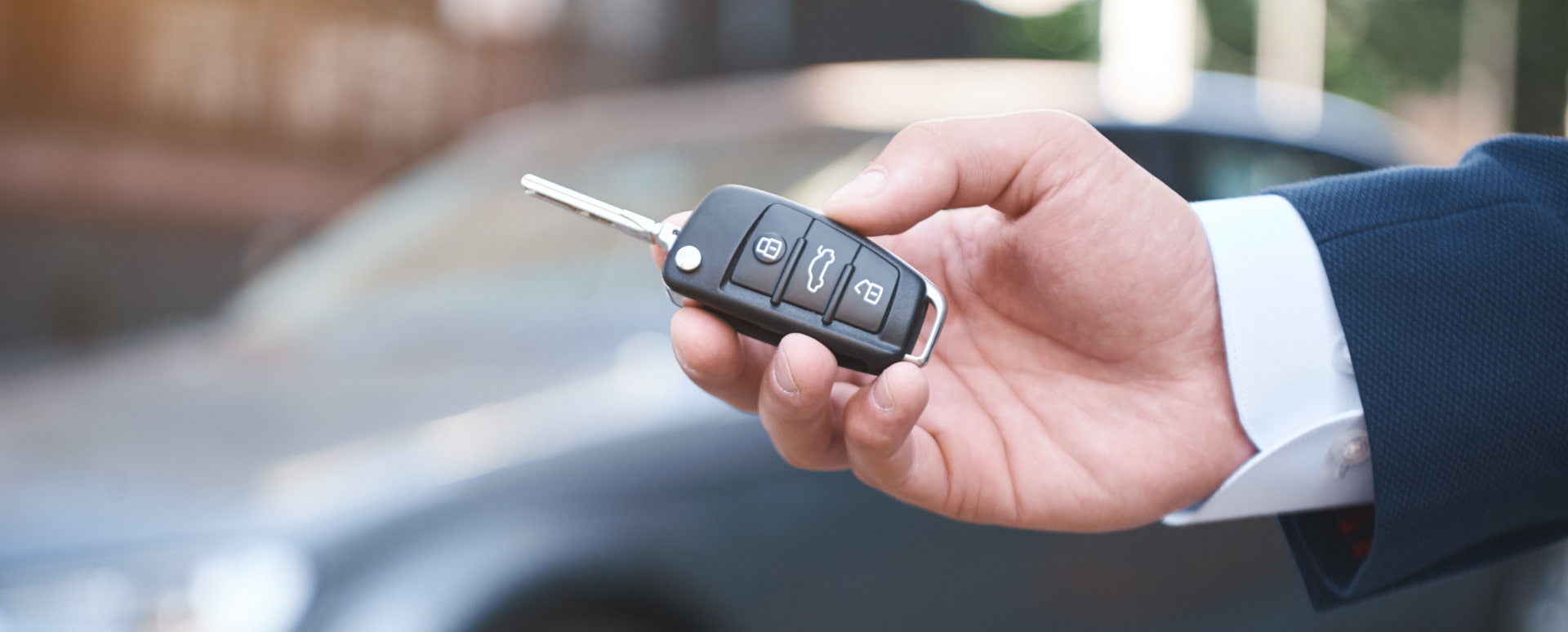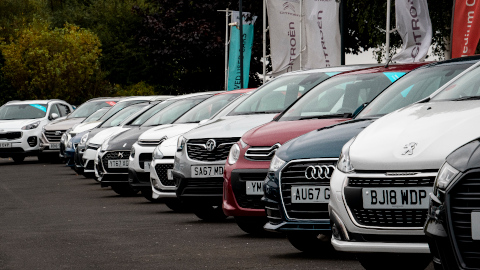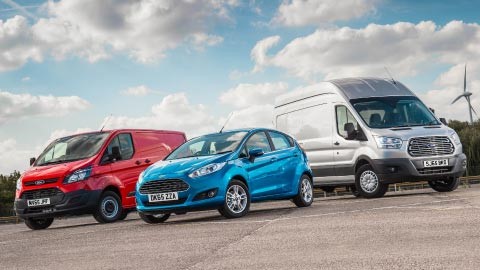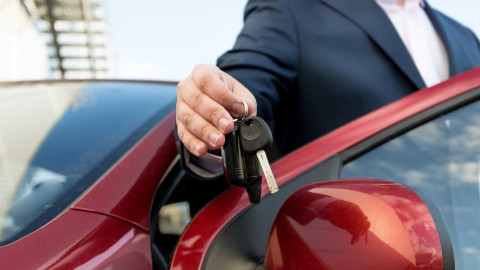Leasing vs Buying a Car
28th Aug 2025
By Ellie Brown
If you're in search of your next car, you may have come across various payment terms and acronyms, such as Personal Contract Purchase (PCP), Hire Purchase (HP), and Personal Contract Hire (PCH). The choice between these and buying a car outright can often leave many scratching their heads, wondering what it all means and which is the best choice.
The better option ultimately depends on your individual wants and needs. For example, some people appreciate being the outright owner of a vehicle, whereas others are more focused on saving as many pounds and pennies as possible.
There are plenty of benefits that come with each form of car buying, as well as a number of factors to consider before deciding whether buying or leasing is the best route for you. We've explained each in more detail below.
- How does car leasing work?
- Pros and cons of car leasing
- Buying a car outright
- Pros and cons of buying a car outright
- What are the different ways to finance a car?
- Pros and cons of financing a car
- What's the difference between leasing, financing, and buying a car?
- Frequently asked questions
How does car leasing work?
The easiest way to understand car leasing is by thinking of it as a long-term hire, similar to the way you'd rent a house. A lease price is determined through consideration of a number of factors including vehicle value, length of lease, initial deposit and your expected mileage.
This lease price is then split into fixed monthly payments that will last the length of your contract. At the end of your lease period, simply return the car and start another lease on a new vehicle. If you no longer require a car or want to use a different payment option, you're free to do so, as there's no commitment when your lease period is finished.
Leasing is a great choice for those who regularly fancy a new model after a few years, or want to drive the newest vehicles for the lowest cost, as leasing generally comes with a lower payment per month when compared to purchasing.
Pros and cons of car leasing
Leasing has become quite a popular choice over the years, with plenty of benefits to think about. However, like every method of buying, it doesn't come without its drawbacks and important considerations.
Pros of car leasing
- Lower monthly payments compared to financing or hire purchase
- Access to newer cars regularly with the latest technology
- No depreciation to worry about
- Option for maintenance to be included
- No large payments at the end of agreement
Cons of car leasing
- No option to own the car
- Mileage limits can be restrictive and costly if exceeded
- Wear and tear charges may apply when returning the car
- Depends on a good credit score
Buying a car outright
A common way drivers choose to purchase a new car is buying it outright. This usually means paying the full cost of the car upfront, whether by cash, debit card, or sometimes even credit card. For many people, this is made easier if they’re selling or part-exchanging their current car, using that money to cover part (or all) of the cost of their next one.
When you buy a car outright, you become the legal owner. That means there are no ongoing monthly payments to think about, which can bring a sense of financial freedom and peace of mind. You’ll also have full control over the car from day one, including how much you drive it, when you sell it on, or how you choose to maintain it.
Because of these reasons, outright purchase remains a popular choice for drivers who want simplicity and long-term ownership without being tied to contracts or repayments.
Pros and cons of buying a car outright
Buying a car outright is often seen as the simplest route to ownership. While it offers peace of mind and complete control, there are a few trade-offs to consider.
Pros of buying a car outright
- Full ownership of the car, with no monthly payments to worry about
- Complete flexibility in how much you drive, modify, or maintain the vehicle
- Easier to sell or part-exchange whenever you choose
Cons of buying a car outright
- Large upfront costs
- Depreciation affects the value of your car over time
- Maintenance and repair costs are entirely your responsibility
- Selling a car can take lots of time and effort
What are the different ways to finance a car?
When it comes to buying a new car, you don’t always have to pay the full amount upfront. In fact, many drivers choose to spread the cost with finance options that make owning or driving a car more manageable.
From monthly payment plans to longer-term loans, there are a number of ways to finance a car depending on your budget and driving habits.
Hire Purchase (HP)
HP is one of the most straightforward finance options. You’ll usually pay an initial deposit, followed by fixed monthly payments over an agreed term. Once the final payment is made, you’ll own the car outright.
It’s popular with drivers who want a clear path to ownership without the need for a large upfront cost. The car acts as security for the finance, which means you can’t sell it until you’ve paid it off in full.
Personal Contract Purchase (PCP)
PCP is one of the most flexible types of car finance. Like HP, you pay a deposit and then monthly instalments, but those payments are usually lower because you’re only covering part of the car’s value during the contract.
At the end of the term, you have a few choices: hand the car back, trade it in for another vehicle, or pay a final 'balloon payment' to keep it. This method is ideal for drivers who like to change cars regularly, but want the option of ownership.
Personal Loan
A personal loan from a bank or lender is another way to finance a car. With this method, you borrow the full amount you need and then repay it in monthly instalments over an agreed term. Once the loan is paid, the car is entirely yours.
Because the loan isn’t secured against the vehicle, you can sell the car at any time. However, your eligibility and interest rate will depend on your credit history.
Credit Card
For some buyers, especially if the car is on the lower end of the price scale, using a credit card can be the most practical option.
That said, interest rates can be high if you don’t pay off the balance quickly, so this method usually works best when you can clear the debt within a short time frame.
Pros and cons of financing a car
Car finance has become one of the most popular ways to get behind the wheel of a new vehicle. Spreading the cost into monthly payments can make driving more affordable, but it’s not without its disadvantages.
Pros of financing a car
- Makes newer or more expensive cars more affordable by spreading the cost
- Plenty of options to suit different budgets and needs
- Some plans include added benefits like warranties, breakdown cover, or servicing
- With PCP, you can change cars regularly without the hassle of selling
Cons of financing a car
- You don’t fully own the car until the finance is paid off
- Monthly payments can add up to more than buying outright in the long run due to interest
- Mileage restrictions and wear-and-tear rules often apply
- Missing payments can affect your credit score and risk the car being repossessed
What's the difference between leasing, financing, and buying a car?
With so many considerations when choosing how to purchase your next car, we’ve broken down each option below to help you see the key differences at a glance.
| Buying Outright | Leasing | HP | PCP | |
|---|---|---|---|---|
| Ownership of the car | Yes | No | Yes | Option to buy at the end of contract |
| Monthly payments | No | Yes | Yes | Yes |
| Mileage limits | No | Yes | No | Yes |
| Option to return the car | No | Yes | No | Yes (return, trade in, or buy) |
| Maintenance included | No | Available as an add-on | No | No |
| Depreciation worries | Yes | No | Yes | No (unless you buy the car at the end of contract) |
Frequently Asked Questions
Leasing usually works out cheaper month to month, but buying can be better value in the long run since you’ll own the car and won’t keep paying for replacements.
Yes, if you can afford the upfront cost. It means no monthly payments, full ownership from day one, and freedom to keep or sell the car whenever you choose.
Leasing is generally designed for new cars, but some providers offer used car leases. While monthly payments may be lower, availability is limited and terms can be less flexible.
Is it better to lease or buy a car?
As you would've worked out, there's a lot to consider when it comes to deciding how you'll pay for your next car. But at the end of the day, it's dependent on your own preferences and needs. Here are a few key points to consider:
- Do you want to be the outright owner of the vehicle?
- How often will you want a new vehicle?
- Remember that if buying, vehicle depreciation will affect the car's overall value and may not be what you expected when purchasing.
- Leasing is arguably less hassle than buying as the car is under warranty for, at least, the majority of the leasing period.
Before committing to a payment option, you'll need to ensure you fully understand what they mean and their potential costs, as they're long term commitments with a considerable amount of money.
Our blog section has a variety of handing guides to help you expand your knowledge on various elements of car ownership. The friendly associates at your local Evans Halshaw dealership will also happily explain the various options to you in more detail to help you get out on the open road.











